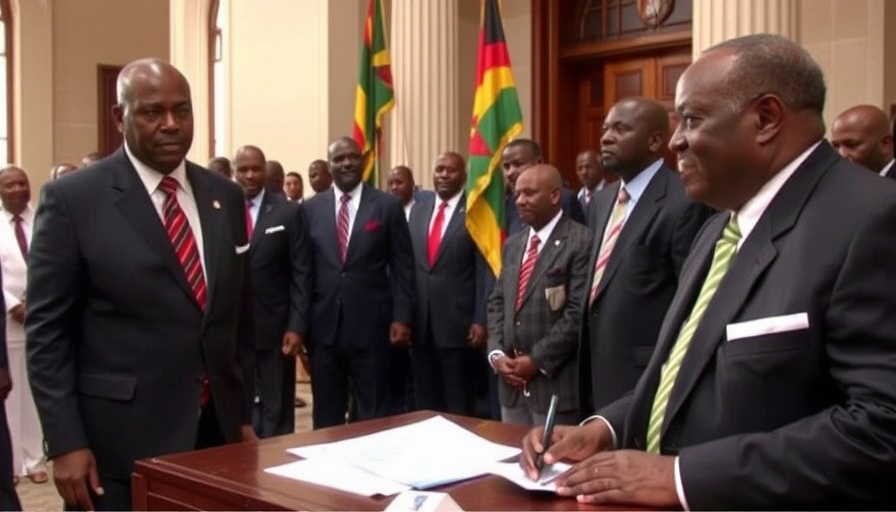
Understanding the New Law Impacting Zimbabweans
The recent decision by the Zimbabwean court to reduce penalties for individuals deemed 'unpatriotic' ushers in a potentially transformative period for governance and civil liberties within the country. This ruling challenges the previous framework which allowed for severe penalties, thus affecting both individual rights and public discourse in a nation at the cusp of economic reform.
The Socio-Economic Ramifications
This development is particularly significant as Zimbabwe navigates a complex economic landscape. With the economy struggling under the weight of inflation and unemployment, the ruling can be seen as a move towards encouraging civic engagement rather than stifling dissent. By mitigating the consequences of speaking out against government policies, stakeholders may find potential avenues for dialogue that could foster investment and stability.
The International Perspective
From a global standpoint, the ruling resonates across diplomatic circles, particularly among those who monitor Africa's evolving role on the international stage. This legal shift could signal a more open governance style, making Zimbabwe an intriguing case for foreign investments and collaborations—essentially positioning itself as a partner in the global economy that respects human rights.
Challenges Ahead
Despite the favorable ruling, challenges remain. The broader implications of civic freedoms and the government’s future actions in enforcing this ruling are paramount. Business leaders and policymakers must remain vigilant in scrutinizing whether this legal decision translates into tangible change. Continued advocacy for democracy and human rights will be essential to ensuring that the momentum toward reform is sustained.
As we observe these changes unfolding, staying informed about the evolving relationships within Africa, especially concerning trade and governance, becomes crucial for those invested in the continent's future.
 Add Row
Add Row  Add
Add 


 Add Row
Add Row  Add
Add 

Write A Comment